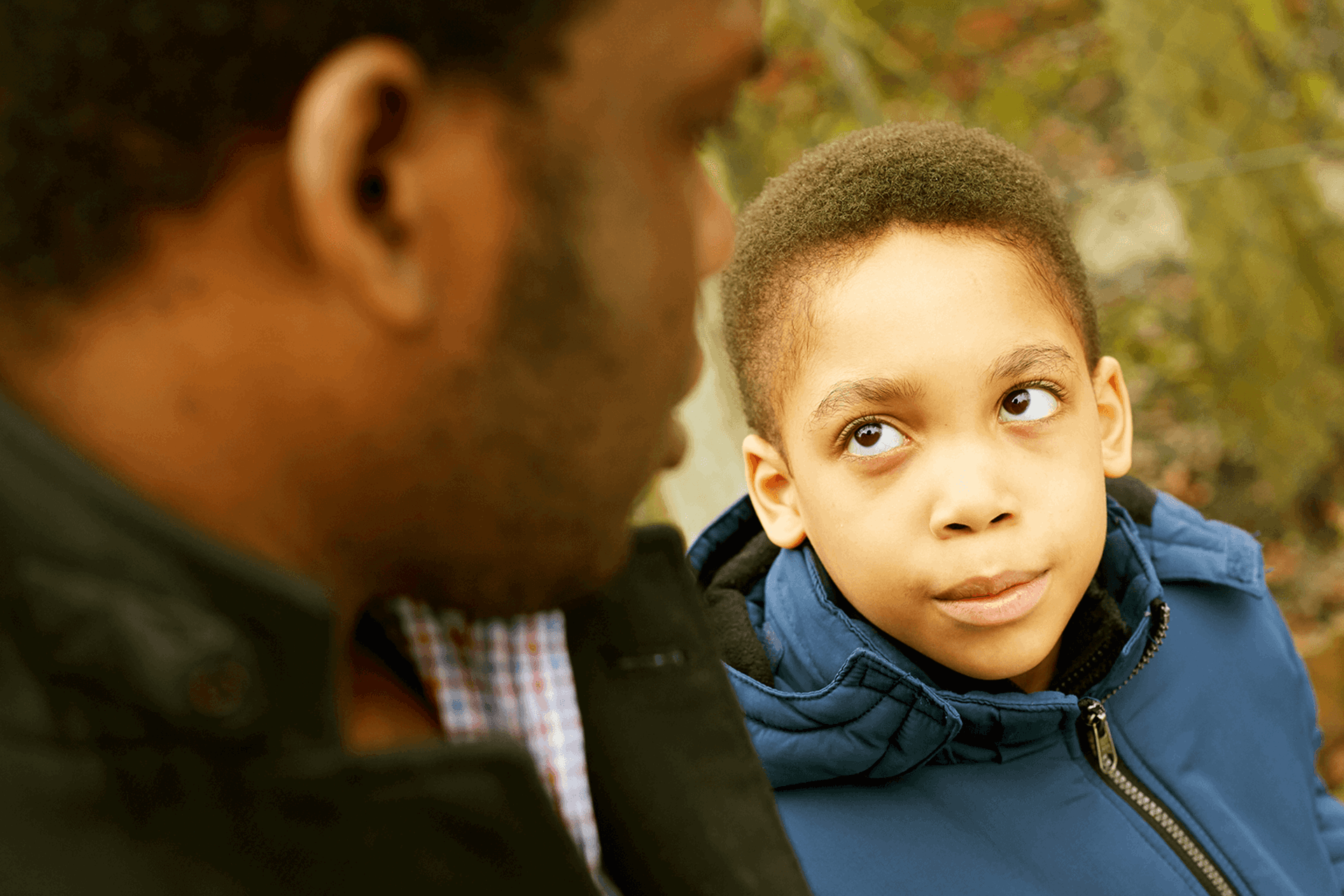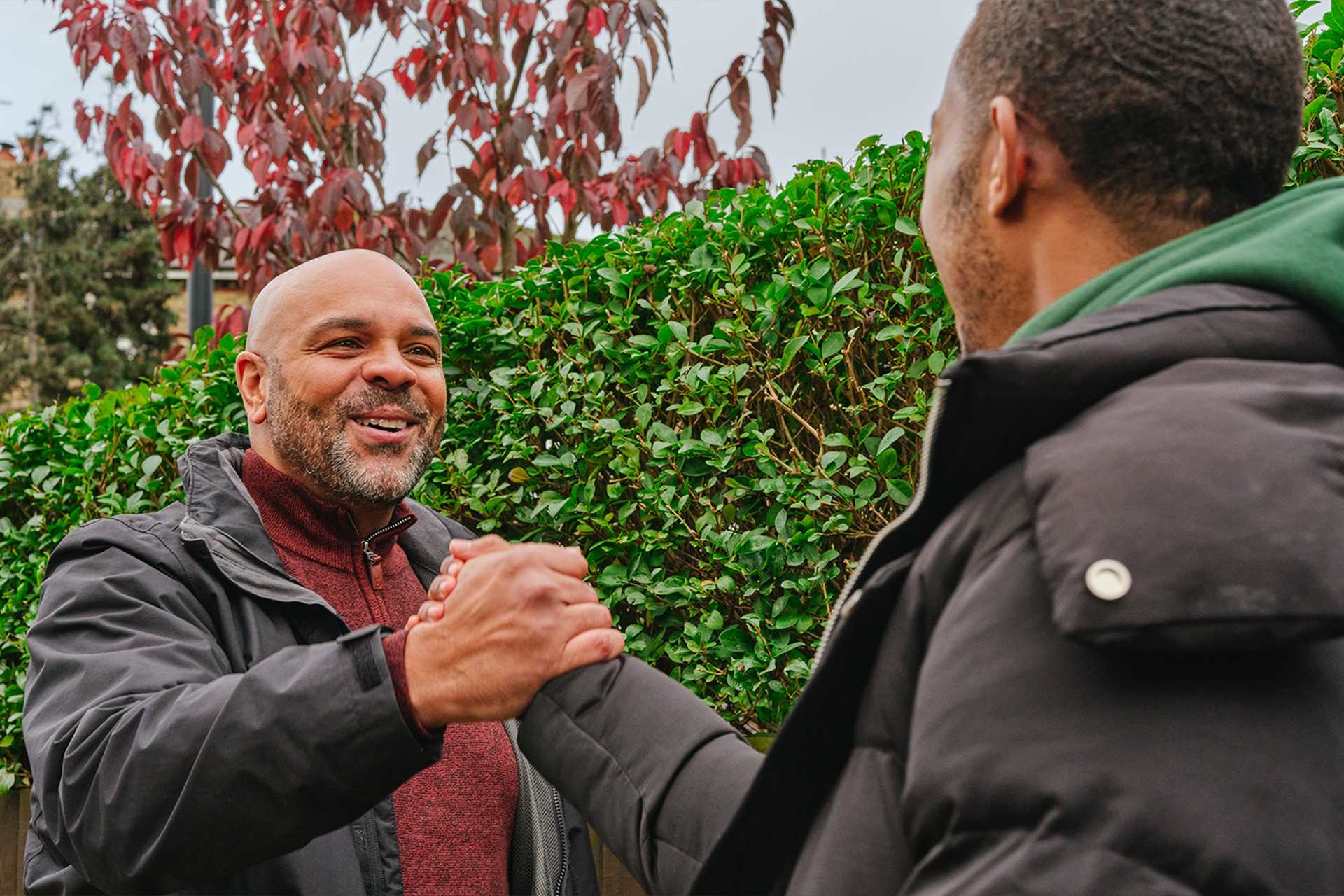
- For:
- Community support,
- Youth workers,
- Schools,
- NHS staff and commissioners
Tips and advice to support you to build trusting relationships with young people, allowing space for conversations around mental health to happen.

Young people have improved mental health and wellbeing as a result of positive relationships with adults in their community. Supportive adults keep young people safe and let them know that they have somewhere to turn to when needed.
We gathered youth workers, music tutors, sports coaches and mentors together to hear their top tips for building positive relationships where mental wellbeing can thrive.
Take a look at some of these tips below.
Young people have told us they like it when adults set out the boundaries of their relationship early on. You’re not there to be their friend, or their teacher, and they might not have had many trusted adults in their lives, so they need you to set the boundaries for the relationship. What can you help a young person with, when and where can they contact you and what will you do if you can’t help them directly? Keeping consistent with your boundaries helps young people feel safe and know that you will treat them fairly. Take a look at some of our tips for setting boundaries.
Have a genuine interest in who a young person is as a person, as well as their wellbeing. Listen to what they say to you, ask them about things they are interested in and remember what they say. Following up on what they’ve said shows that you have listened and you care.
Take your time to learn young people’s names and their pronouns, and use them. This helps young people feel seen and heard.
When you see a young person doing something positive – such as helping a friend, behaving well during your session, looking out for someone else – compliment them for it.
Reflect on your own emotional literacy. How many emotions can you name? How does anger feel different to frustration? Share this with the young person.
Don’t be offended if today they don’t want to spend time with you or speak to you - a ‘No’ to chatting today is not always a ‘No’ tomorrow. Try again another time, especially if you’ve noticed a change in a young person’s behaviour. Particularly around exam season knowing an adult is available is important.
When spending time with your young person, be fully present with them and give them your full attention. Remember, you are the asset to this young person.
Where you can, actively listen to young people without interruption. Be open, honest and real. This can be asking them something interesting about themselves or sharing something about yourself.
Consider both youth culture and a young person’s cultural background. What do you know about the things that are influencing the way they understand the world? This could be big societal factors, like race or religion, or smaller things, such as pressure to do well at school or attitudes within their friendship groups. Listening to your young people is a great way to understand more about what is going on for them and the factors that are impacting their lives.
Give some time to talking as part of each session – timetable it in so they know that time is there.
Depending on your context, trying out something new together can create space to talk about mental health as well as build a positive sense of achievement.
Try a new move in your sports club. Tackle a new piece of music in your class. Or if you have the chance, paint a room or get outside and climb a hill!
Boost a young person’s confidence by trying something new or challenging. Shared experiences can really help to build rapport and relationships. It can also be easier for young people to talk about their feelings when they are doing other activities.
It was really when she just listened. I had a lot I needed to say, and everything was just accepted and understood. There was no judgement for anything I said. And at one point I said I was lucky to have her, and she said that actually she was lucky to have me. Just knowing that I mean a lot to somebody really made me feel better.
A key thing young people told us about their supportive adults is to clearly set the boundaries of your relationship . This way young people can set their own expectations, which helps them feel secure in understanding when and what they can share with you, and what you will do with that information.
Take a look at some of our tips for setting effective boundaries.
Take some time to know your own boundaries first. When are you really available? Set the boundaries early on in your relationship, rather than when you find your boundaries being pushed.
Give time to clearly and gently set out your availability, especially if you think that it is different from your young person’s expectations. It's kinder to be clear from the outset. Make sure to also repeat your availability because it's easy to forget.
Make sure to keep to your boundaries once you’ve set them - consistency is crucial in creating trust and understanding.
We have lots of information and advice guides that you can signpost parents and young people to for support with their mental health.
Read our spotlight stories from professionals working with young people for more tips on how to build supportive relationships.
Whether you love the page or think something is missing, we appreciate your feedback. It all helps us to support more young people with their mental health.
Please be aware that this form isn’t a mental health support service. If you or a young person you work with is in crisis right now and wants to talk to someone urgently, find out who to contact on our urgent help page.
At YoungMinds we take your privacy seriously. If you’d like to read more about how we keep the information we collect safe, take a look at our privacy policy.